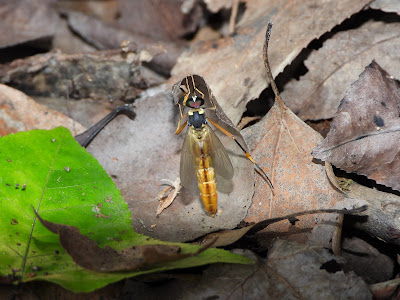'Deirín dé'
Deirín dé, deirín dé!
Tá an bunnán donn ag laḃairt san ḃféiṫ;
Deirín dé, deirín dé!
Tá an túirnín lín amuiġ san ḃfraoċ.
Deirín dé, deirín dé!
Ġeoḃaiḋ ba siar le héirġe an lae;
Deirín dé, deirín dé!
Is raġaiḋ mo leanḃ dá ḃfeiġilt ar féar.
Deirín dé, deirín dé!
Éireoċaiḋ gealaċ is raġaiḋ grian fé;
Deirín dé, deirín dé!
Tiocfaiḋ ba aniar le deireaḋ an lae.
Deirín dé, deirín dé!
Leigfead mo leanḃ ag piocaḋ sméar,
Deirín dé, deirín dé!
Aċt codlaḋ go sáṁ go fáinne an lae!
'A Sleep Song'
Deirín dé, deirín dé!
The brown bittern speaks in the bog;
Deirín dé, deirín dé!
The nightjar is abroad on the heath.
Deirín dé, deirín dé!
Kine will go west at dawn of day;
Deirín dé, deirín dé!
And my child will go to the pasture to mind them.
Deirín dé, deirín dé!
Moon will rise and sun will set;
Deirín dé, deirín dé!
Kine will come east at end of day.
Deirín dé, deirín dé!
I will let my child go gathering blackberries,
Deirín dé, deirín dé!
Pádraic H. Pearse,
Collected works of Pádraic H. Pearse, 5 vols (Dublin: The Phoenix
Publishing Co., 1924), II, pp. 108-11.
Pearse's notes on the poem:
The Sleep Song which I add as a pendant to the song of childhood and
death [this refers to the previous poem in the anthology: Pádraig Ó hÉigeartaigh's ‘Ochón! A Dhonncha’]
I have pieced together from my recollection of a song; that I heard
in my own childhood from the woman to whom I owe all my enthusiasms.
Where my memory has failed I; have filled in the; lacunae from a
version of the; same lullaby taken down in West Cork by Mr. Amhlaoibh
Lynch. The refrain “deirín dé” is the name given by children to
the last spark at the end of a burning stick used in certain games.
With the thought in stanzas 2 and 3 compare Sappho’s “Hesperus,
thou bringest back all that daylight scattereth, thou bringest the
lamb and the; goat to fold, thou bringest the infant to its mother.”































